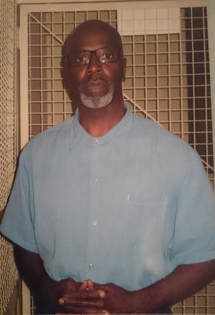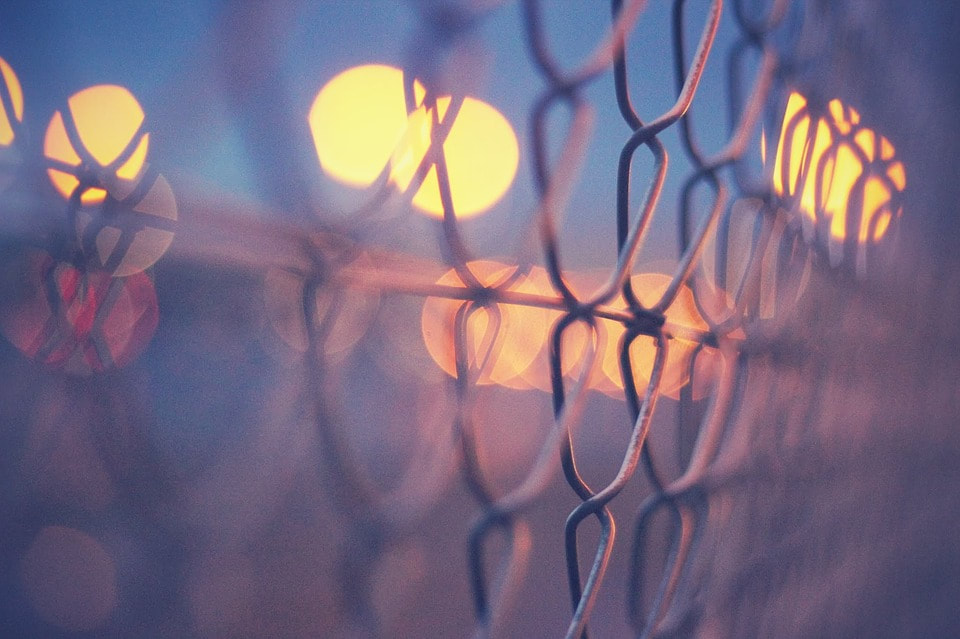|
10/24/2017 1 Comment Poetry by Steve ChampionThe Faces I See Whenever I enter the Death Row yard I always try to see it from a different perspective, and after 34 years you would think I’ve seen it from every angle. But I haven’t… no one can. A person can spend almost an entire lifetime somewhere and come to think they know everything about the place and faces. Then one day, all of a sudden, like gunshots shattering the quiet calm, the person realises they don’t know the place or its faces at all. Death Row and its faces are like that. The mosaic of faces that litter Death Row yard are reflections of urban life. They speak of marginalised social conditions, of emotional and psychological baggage, and of a thousand other life deformities that painfully contort the face in unfathomable ways. These faces pace the small yard in rectangular or circular patterns that unconsciously define the limited parameters of their lives, where a single basketball, a deck of cards, and a chess set symbolise the nothingness and powerlessness that’s always felt, and always present. Many of these faces attempt to conceal private pain, holding it back like a failing levy. Many faces are those of children, not yet fully grown men (but men enough to be executed). There are husbands and sons who have never experienced the gauntlet of confinement and who are straining to overcome their vertigo. There are the blank faces hardened by concrete enclosures, stranded on a deserted mental island, unable to return. But all of the faces, including mine, struggle to deal with the common thread that joins us more closely than we care to admit, death. When I observe people engaged in conversation, I watch their facial expressions to see the undercurrent of interior feelings rushing beneath the translucent surface. Sometimes I catch a face staring at me, giving me that jagged penetrating gaze, as if we’d once been mortal enemies, or as if I remind the face of another face it once knew. I disarm it with a smile – the other looks away – and in that brief space of time I have articulated a profound message. Sometimes I feel the urge to walk up to someone whose face shows particular signs of confusion and ask “What’s wrong?”, but prison protocol prevents me from making such an intrusion, which can be tantamount to invading the sovereign airspace of a foreign country. The result? War. What do you do when you see a face experiencing what you have gone through? Well, on Death Row, you do nothing, nothing but watch in silence as the faces go from one extreme to the next. A perfect re-enactment of Greek tragedy, where death waits patiently to close the final scene. If I say to someone “How are you doing?”, I am met by well-honed defence reflexes aimed at protecting the ego and erecting a wall around insecurities that are too vulnerable to be exposed. I understand it, so I just observe, face after face, made bitter by time and scarred by living, forged in a season of defeats that have moulded a battered soul. Truly, it’s a burden to have to go through life with a phantom face. When yard recall is announced, I return to my cage, bringing those faces with me, and I meditate, tapping into the realm where every face becomes one. Later, when I finish meditating, the faces return with all of their contradictions, and I wonder what expressions tomorrow will bring. My Brother is Gone I want the world to know I walked, lived and blossomed during the time of his presence. My emotions are too raw, my senses too frayed to tell them, tell anyone... for 20 brass knuckled years we struggled together, forging a bond cemented by our faith, love, and brotherhood. Our way was not always as smooth as a well manicured lawn; We blazed the path as warriors, knowing in the end the highest form of bravery is laying down the sword. My brother is gone. No longer will I gaze upon his glistening mahogany colored skin, look into his gentle eyes, or grip his Hulk-shaped hands. No longer wil we greet with a brotherly hug, or bump fists. No longer will I hear his soft-spoken voice, see his warm smile, or bask in his charisma. No longer will I see his boyish grin, his smooth gait. No longer will we laugh together, or I poke fun at his modesty in the face of a compliment. No longer will we catch each other's eyes from across the yard, acknowledging our whereabouts. No longer will I probe his razor sharp mind, or excite his curiosity. My brother was murdered At San Quentin Prison, December 13, 2005, 12:36am. My brother is gone. I curse those who rejoiced upon hearing the news of his death, now that they are spared from the muscle of his mind. Though my heart aches, and my rage festers, no revenge of bullets, blades or bloodshed will bring my brother back. My brother is gone. I watched him shed the shackles of his wild image, become reborn in a new spirit. I named him Ajamu, "He who fights for what he wants" He fought agains all odds, against all the naysayers who sought to pigeon-hole and fossilise him in his lowest state. He rose about it to build a peaceful legacy that will be talked about for years to come. As the energy emptied from his body and his life was no more - I yearned to bury him in the African way - bathe him in lavender sprinkle myrrh over his body light a candle as I wrap him in silk sing freedom songs. You are free my brother. Free from the perils of a country that daggers black pride, emasculates black strength, and kills black hope. I wanted to chant healing mantras for him to take him on his final journey, weigh his heart on the scales of Maat, ensure his passage through the underworld, where Ausar will welcome him. My brother is gone. I will not weep as others will weep; I will not break as others will break; I will not mourn him as others will mourn him; I will not celebrate him. He has left me plenty, but taken a part of me with him. I shall honor him as I honor every freedom fighter; I will love him in death as I loved him in life. We shall meet again, my brother, as we planned, at the crossroads. I Sing I sing not for praise or critique. I sing to stay alive, reminding myself singing connects me to God, to a universe, to a spatial reality no confinement can touch, no oppression can wipe out. Singing heals my wounds, softens my heart. Men sing in solitary confinement to free themselves from boredom. I sing to stay human Because I don’t want to go insane So I sing Illusions of Control We are in control, or we delude ourselves of this daily. We cannot control the rising and setting of the sun nor the tides of oceans or the movements of stars. We can’t control the weeping of children yearning for their Mother’s breast; so how can we control the longing of the human heart dying to be fulfilled? Every attempt bleeds of failure while eating away vestiges of our souls. I knew a man who once rejected love. He fought it, suppressed it, ignored it and even wished it away. He claimed victory in his denial. “I am in control” he declared It was his daily mantra. But like a tsunami, love grew stronger, building momentum Until one day it overran him Like a volcano Consuming Everything in its path. Coming Interlock our hands while the river flows from our steeple. A quiet storm will not destroy our temple. We'll fly together open hearted as heaven awaits us.  Bio: Steve Champion (Adisa Akanni Kamara) is a death row prisoner at San Quentin State Prison. A Crip emeritus, he grew up in South Central Los Angeles. Champion has been incarcerated since 1981. He is self taught and conversant in African history, philosophy, political science, and comparative religion. As an author he has received an honorary mention in the short fiction category in the 1995 Pen Prison Writing Contest and in 2004 won first place in nonfiction for his essay, “His Spirit Lives On: George E. Marshall.“ In 2010 Steve published a memoir entitled "Dead to Deliverance". Steve continues to write and research for future projects. Steve welcomes correspondence at the address below: Steve Champion C58001 San Quentin State Prison San Quentin CA 94974
1 Comment
Charlotte Stuart
10/24/2017 06:29:11 pm
When I read some poetry, I understand, for seconds at a time, the purposes of pain and suffering. Other poetry makes light of suffering or turns it into words. Still other poetry is a practice, a vehicle of transformation (Theodore Roethke). Go into the woods, fall in love with tiny brutes of nature; seriously, that's what he did...in case you haven't encountered him. Yours, above, respects suffering when the absence of it reflects shallowness or worse. I hope many people will have an opportunity to read your work.
Reply
Leave a Reply. |
AuthorWrite something about yourself. No need to be fancy, just an overview. Archives
April 2024
Categories |

 RSS Feed
RSS Feed
